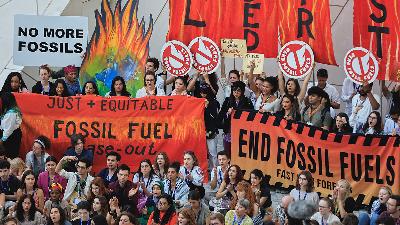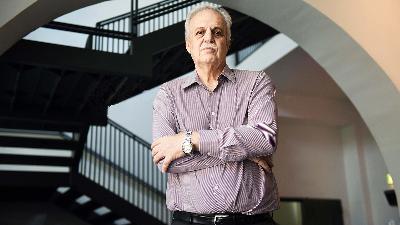Reflecting on the Presidential Candidates’ Campaign Teams
Monday, December 18, 2023
The presidential candidates’ campaign teams are an illustration of the type of government they would form if elected. Businesspeople have a central role.
arsip tempo : 174583937720.

CAMPAIGN teams may be seen as an illustration of the style of government that will be established by each presidential and vice-presidential candidate if they win the election. The significant role of tycoons in these teams shows the pragmatism of these candidates in obtaining the necessary logistical support for their campaigns.
The Prabowo Subianto-Gibran Rakabuming Raka and Ganjar Pranowo-Mahfud Md. pairings have businesspeople at the top of their teams. Arsjad Rasjid leads Ganjar’s team and Rosan Perkasa Roeslani is in charge of Prabowo’s team. Those men have experience leading the Indonesian Chamber of Commerce and Industry.
Anies Rasyid Baswedan and Muhaimin Iskandar initially wanted to appoint a politician who is also a businessperson, Ahmad Ali. However, concerns that the member of the House of Representatives (DPR) from the NasDem Party would be caught up in a legal case led to his appointment being delayed. Despite this, Tokopedia founder Leontinus Alpha Edison and tycoon Thomas Lembong are on Anies’ campaign team.
The appointment of businesspeople to the inner circle of each presidential candidate’s campaign team is related to the need for considerable logistical requirements in order to garner support. They have been asked to gather funding to meet this need. They are also in charge of the politicians from political parties, who often squabble amongst themselves, resulting in the party machine not functioning optimally.
Joko Widodo and Ma’ruf Amin used the same technique of appointing businesspeople when they appointed Erick Thohir in the 2019 election campaign. In 2014, when he ran with Jusuf Kalla, Jokowi entrusted the Indonesian Democratic Party of Struggle (PDI-P) politician Tjahjo Kumolo with the leadership of his team. The connections and personal assets of these businesspeople were needed to cover the costs of the campaign, including trips made by the candidate and all the members of their teams to the regions. Jokowi later rewarded Erick with the position of State-Owned Enterprises Minister.
It is as though the considerable demand for logistics support has normalized the central role of businesspeople in campaign teams. But, in fact, this reflects the way that candidates take a pragmatic approach that they might well continue when running their administrations. Instead of putting together the ideal team as a reflection of the visions and missions they offer, candidates concentrate entirely on the need to cover costs.
The consequence of using this approach to forming campaign teams was reflected in Jokowi’s government. Throughout his administration, the former Jakarta governor was oriented strongly towards investors. His regime produced many regulations that rolled out the red carpet for investors. The Job Creation Law, which was drawn up recklessly—including bypassing a Constitutional Court ruling striking down the law—is just one example. Of course, Jokowi enjoyed the support of the DPR, which has many rich people among its members.
As well as examining the record of these presidential candidates and their running mates, voters need to take a look at the composition and way of working of their campaign teams. These teams—including the political parties, activists and volunteers within it—are an illustration of what the candidates will do later.











